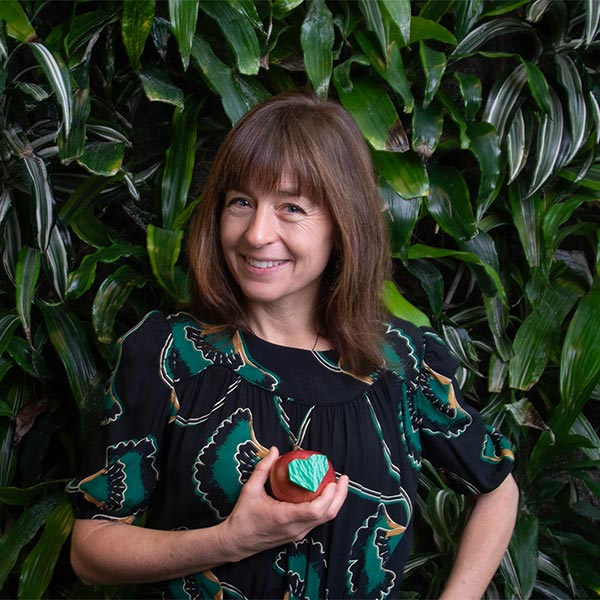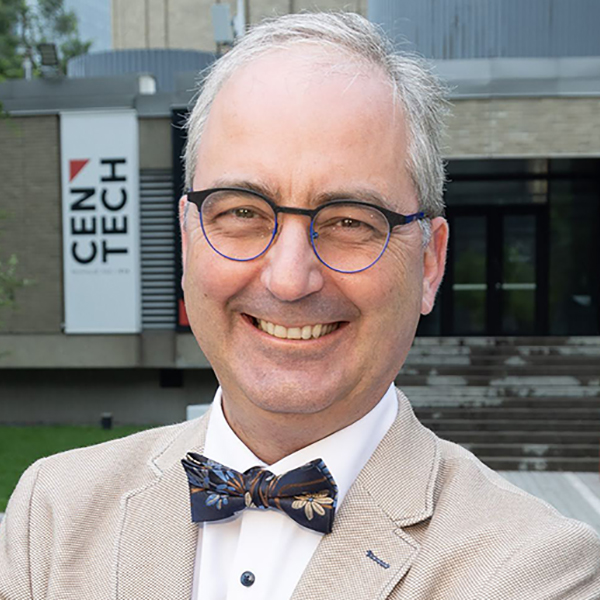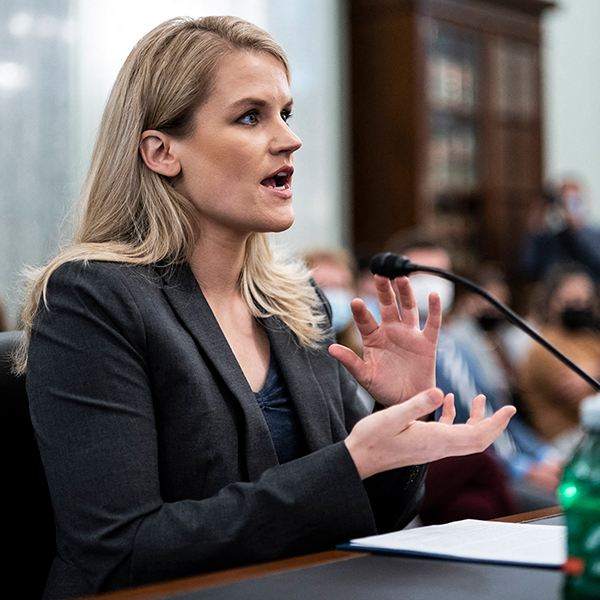Martine Ouellet, BEng’92, is the new leader of the Bloc Québécois, the federal political party whose official goal is Quebec independence. And she is not deterred by polls indicating over 80 per cent of Quebecers don’t want a new referendum on Quebec sovereignty.
“People are not interested in a referendum,” she allows. “People are interested in independence. It is as if you ask a student, ‘Do you want [to take] another Mech 1 exam?’ No. ‘Do you want a degree in mechanical engineering?’ Of course!”
Ouellet wears the Iron Ring and draws on her engineering background to explain her political ideas.
Acclaimed in March as Bloc leader, Ouellet became the third McGill graduate to lead a major federal party, along with Liberal Party leader (and prime minister) Justin Trudeau, BA’94, and the NDP’s Tom Mulcair, BCL’76, LLB’77.
Ouellet was born in Longueuil, a sovereignist stronghold on Montreal’s south shore. Like Trudeau, she did her CEGEP studies at private Collège Jean-de-Brébeuf in Montreal.
While Ouellet considered pursuing a law degree after CEGEP, she opted for engineering instead. “I like science, physics [and] mathematics a lot,” she says.
Ouellet chose mechanical engineering at McGill over École Polytechnique because the Université de Montréal engineering school included intensive chemistry in its first year. “I had enough chemistry in CEGEP,” she says.
Straight out of McGill, Ouellet was hired by Hydro-Québec in 1992, working with the utility for 18 years in management roles and earning an MBA part time at HEC Montréal.
At Hydro-Québec, Ouellet directed energy efficiency plans for large industrial consumers: aluminum smelters, breweries, mining and pulp and paper mills.
“Most of what I did in my career at Hydro-Québec was as a manager of a multidisciplinary team in energy efficiency.”
She left the publicly-owned utility in 2010 when then Parti Québécois leader Pauline Marois asked her to run in a by-election in the south shore Vachon riding, which she still represents.
Ouellet was natural resources minister in the Marois government, from September 2012 until April 2014 when the Liberals returned to power.
As minister, one of her first acts was to shut down Gentilly II, Hydro-Québec’s only nuclear reactor. “We had other [energy] alternatives in Quebec that were less costly and better for the environment,” she says.
Ouellet ran twice for the PQ leadership, losing to Pierre Karl Péladeau in 2015 and Jean-François Lisée in 2016.
Lisée has put off the possibility of a third Quebec referendum to his second term, after 2022 – assuming that the PQ wins in 2018. Ouellet campaigned to start the referendum countdown as soon as the PQ regained power.
Like her mentor, former Quebec premier Jacques Parizeau, Ouellet sees in globalization a justification for sovereignty, arguing that independence would give Quebec a place at the table to negotiate a new NAFTA and other international agreements.
She argues that Ottawa favours the interests of Western Canada and Ontario over those of Quebec. “We don’t have the same priorities,” she says, pointing to strong opposition in the province to the proposed Energy East pipeline that would carry Western crude oil across Quebec to a New Brunswick port.
While she is now the leader of the 10-MP Bloc caucus, Ouellet has no House of Commons seat. She is no longer a member of the Parti Québécois caucus and sits as an independent member of the Quebec Assembly, practising “transparliamentarianism,” her term for shuttling between Ottawa and Quebec City. Not everyone is comfortable with that arrangement – former Bloc leader Gilles Duceppe has been critical of Ouellet for simultaneously occupying jobs in both the provincial and federal spheres. Ouellet counters that the ethics commissioner for the National Assembly saw no conflict of interest in the dual roles.
For the 2019 federal election, she is counting on an eclipse of NDP fortunes in Quebec, leading to a showdown between Trudeau’s Liberals and the Bloc. She says polls indicate that NDP support in Quebec continues to ebb (a January poll still had them ahead of the Bloc, though).
Looking back to her time as an undergraduate, Ouellet says, “I liked McGill a lot.” The Victorian-era Macdonald Engineering Building wasn’t shiny and modern, but she liked its Harry Potter vibe. “We had the labs,” she says. “We had what we needed.”
And despite her petite stature – “Look at my size,” she exclaims – Ouellet played intramural broomball and women’s flag football on the lower campus.
“Training in mechanical engineering is training that leads to a very concrete approach,” she says. Engineers ask, ‘Does a solution work? Can we make it operational?’ It is very down-to-earth.”
Asked if McGill can share the credit if her dream of Quebec independence becomes a reality, she replies, “If it happens, it will be in part thanks to McGill. And McGill will continue to exist as an important teaching institution in Quebec.”


